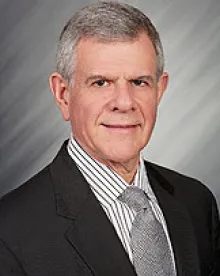On May 12, 2014, Deputy Attorney General James Cole issued a memo to federal prosecutors, as well as several investigative offices (the FBI, DEA, ATF and U.S. Marshals Service) entitled “Policy Concerning Electronic recording of Statements.” The issuance of the memo is somewhat worthy of note because it was done with no fanfare or announcement by the Department, at the time. It is more worthy of note because it reflects a dramatic change in a many decades-long policy of the Department not to electronically record in-custody interviews. Attorney General Holder has described the change as a “sweeping new policy” and the Department announced the “significant policy shift concerning electronic recording of statements” in a May 22, 2014, press release, after several published reports on the policy. Others have referred to the new policy as an “about-face” by the Department.
The new policy, which takes effect on July 11, 2014, creates a presumption that federal agents in the Department‘s investigative branches (Special Agents of the FBI, DEA, ATF) and the Marshals Service will electronically record interviews of individuals in federal custody. The policy also encourages federal prosecutors and agents to record non-custodial interviews.
The policy establishes a “presumption that the custodial statement of an individual in a place of detention with suitable recording equipment, following arrest but prior to initial appearance [before a judicial officer], will be electronically recorded, subject to” exceptions set out in the memo. Before touching on some specific aspects of the policy, one notes that the policy creates a “presumption” in favor of such recordings. One cannot help but believe that use of the word “presumption” was the result of careful thought, deliberation and, perhaps, debate. In keeping with the language of the policy, Attorney General Holder’s video-statement about the policy makes several references to the presumption established by the policy.
In other words, the policy does not tell federal prosecutors and agents that they “should” record such statements or that they “should consider” making such recordings. The word choice may not be significant, at least in part because like most if not all Department policies it purports not to create any rights or benefits “enforceable at law or in equity in any manner, civil or criminal, by any party against the United States, . . . .” However, it may not be long after July 11 before a member of the bench is asked to consider whether a “presumption” in favor of such recordings means more than a guideline that says prosecutors and agents “should” or “should consider” recording custodial interviews. The Department has said that the policy follows “a collaborative and thorough review.”
DAG Cole’s memo says that the “presumption applies to interviews of persons in FBI, DEA, ATF or USMS custody” and that interviews “in non-custodial settings are excluded from the presumption.” Thus, the policy does not purport to cover an interview by the FBI of someone in state custody.
The policy covers “interviews in connection with all federal crimes” and the recording is supposed to start “as soon as the subject enters the interview area or room and will continue until the interview is completed.”
The memo defines “place of detention” as “any structure where persons are held in connection with federal criminal charges where those persons can be interviewed” (e.g., federal, state or local facilities, such as a correctional facility, jail, police station or holding cell). A further limitation on what is covered as a “place of detention” is a facility that has “suitable recording equipment.” The FBI, DEA, ATF and USMS are to draft their own policies “governing placement, maintenance and upkeep of [the recording] equipment, as well as requirements for preservation and transfer” of the recorded statements.
There are exceptions to the policy, such as when the interviewee says he/she is willing to give a statement “but only if it is not electronically recorded” or when public safety or national security issues are in play. And, perhaps, somewhat obviously, the presumption does not apply when recording is not “reasonably practicable.”
Whatever one may think of the merits or demerits of the new policy, it will not be long after the policy takes effect in July that defense attorneys and federal prosecutors will be dealing with the realities of the Department’s new thinking on the recording of custodial interviews. Part of those realities will be played out in Court. There almost certainly will be cross-examinations of Agents about why a recording was not made of an allegedly incriminating statement by a defendant: Was the defendant not in custody in a place of detention when interviewed? Was the defendant not in custody of an agency covered by the Department’s policy (e.g., FBI or DEA)? Was a recording not reasonably practicable?
Stay tuned this should be interesting.




 />i
/>i
